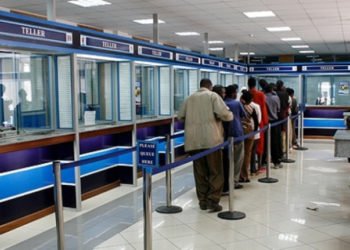The Bank of Ghana (BoG) has warned that the savings and loans (S&L) sector risks becoming a dinosaur as more banks reach the informal sector and MSME sector with their innovative digital financial services.
According to BoG, universal banks in Ghana have rolled out impressive digital financial services that reach the rank and file of Ghana’s population, some of whom were traditionally clients of the S&L industry.
Mrs. Elsie Addo Awadzi, Second Deputy Governor of BoG indicated that in this context, financial institutions that have not already designed, adopted, and implemented a digital transformation strategy are already behind the curve.
The Second Deputy Governor of BoG disclosed this at the 12thAnnual General Meeting (AGM) of the Ghana Association of Savings and Loans Companies (GHASALC) held in Tomreik Hotel, Accra.
Mrs. Awadzi underscored that there is therefore, the urgent need for the S&L sector to take steps to reposition itself by leveraging emerging technologies to modernize their business models to meet the fast-changing needs of their customers and to remain relevant to the segment of the economy that was traditionally served by the sector.
She noted that digitalization comes along with its own complexities and risks, including cyber security risks, third and fourth party/outsourcing risk, data privacy breaches, technology failure risk, increased AML/CFT risks, and consumer protection risk among others.
The 2nd Deputy Governor pointed out that a lot is required by way of strong governance and risk management systems to help mitigate these risks as financial institutions exploit the benefits of digitalization.
Mrs. Awadzi said S&Ls will therefore, need to augment their capital base in order to digitize and deploy more sophisticated systems to help mitigate attendant risks.
Over the last five years, BoG has augmented the risk management framework for banks and SDIs in tandem with increased digitization. These include the Cyber and Information Security Directive issued in 2018 which is currently under review, enhanced anti-money laundering and countering of financing (AML/CFT) rules, and consumer protection rules.
“We will continue to monitor the rapid evolution of risks in the digital financial services ecosystem and recalibrate our rules and supervisory approaches and tools to help mitigate them, while ensuring that regulated institutions effectively manage the risks that their businesses and actions or inactions pose to the entire system”.
Mrs. Awadzi
Context of the AGM
Mrs. Awadzi highlighted that the AGM took place at a crucial era in the global and Ghanaian economies due to the fallout from the COVID-19 pandemic and the recent Russia-Ukraine war.
Against the backdrop of a slowdown in global economic growth, fiscal and monetary stimulus, “we have seen high rates of inflation, high interest rates, and tighter financing conditions all around the world”, the 2nd Deputy Governor said.
“For our domestic economy, the clientele of S&L companies has been some of the hardest hit by the pandemic and its aftermath. This has implications for credit risk and overall financial performance of the industry. The role of the S&L industry in our economy has been significant, providing critical financial services to the MSME sector, the informal sector, and households”.
Mrs. Awadzi
At the end of the first quarter 2022, total assets of the specialized deposit-taking institutions sector exceeded GHS16.0 billion, of which the Savings and Loans sub-sector contributed 35.1%. Savings and Loans companies disbursed a total of GHS3.4 billion in net loans to private enterprises and businesses in the first quarter of 2022 alone.
“Undoubtedly, the S&L industry is at a critical juncture and some strategic rethinking is required by key stakeholders to reposition the industry to unleash its full potential to serve low-medium income households and the micro, small, and medium-sized business sector which is the main driver of socio-economic growth for our economy”.
Mrs. Awadzi
Launch of the Association’s Code of Ethics and Conduct
One of the important considerations of the AGM was the launch of the Association’s Code of Ethics and Conduct. This is aimed at ensuring the continued commitment to adhering to best practices and ethical standards that would engender public trust and confidence in the activities of the savings and loans sub-sector.
The 2nd Deputy Governor said the importance of having a Code of Ethics and Professional Conduct for the sub-sector cannot be over emphasized.
“We all saw how widespread incidence of mismanagement, fraud, non-compliance with rules and high standards of ethics contributed to the collapse of 420 financial institutions regulated by the Bank of Ghana, including 15 savings and loans companies. A code of Ethics and Conduct has the potential to improve confidence and trust in the S&L sector and help to boost its fortunes”.
Mrs. Awadzi
She, however, stressed that a Code of Ethics and Professional Conduct by itself cannot work any magic without the conscious observance of its provisions and strict enforcement by the Association.
It will require a strong commitment to the values enshrined in the Code by all member institutions and their shareholders, Board, and staff, she said. It will require peer vigilance and co-enforcement by members against each other, she added.
The Bank of Ghana endorsed the Code, following its extensive review of earlier drafts, and commit to continuing to support the development of a vibrant and modern S&L sector based on values and cultures that promote trust and confidence and help to strengthen the stability of the financial system.
In her closing remarks, she noted that the potential of the S&L sector to advance and promote financial inclusion through digitalization has been clearly demonstrated on the continent.
The Bank of Ghana, she said, has adopted a forward-looking approach to regulation and “we encourage the sector to follow suit in pursuit of the advancement and development of our economy as a whole”.
READ ALSO: National Mango Week Slated on July 4, Mango Producers Appeal to Gov’t for a Factory























